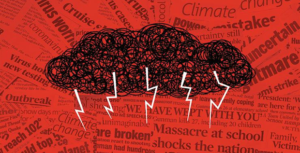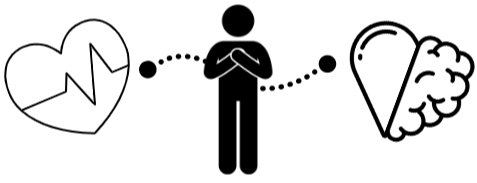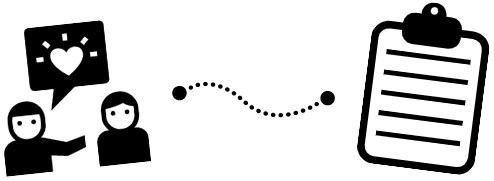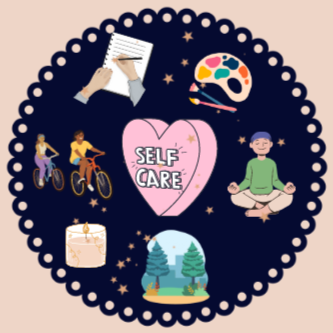By Julia Roman, NAMI Mercer Fall 2023 Intern
With 4.89 billion users worldwide, social media is extremely prevalent. The increasingly widespread use of social media use in our society has led to extensive research that has consistently proven the strong correlation with negative body image ideals.
Social media provides constant exposure to unrealistic beauty standards for users. This is particularly harmful for younger audiences, as they are more impressionable. For example, young girls using social media platforms such as Instagram or TikTok are more likely to see an increase in body dissatisfaction. These platforms often glorify and normalize negative behaviors, such as extreme dieting, excessive exercise, or eating less than is necessary.
Exposure to these detrimental behaviors can lead to a skewed image of one’s body, which can ultimately lead to decreased self-esteem and an increase in disordered eating behaviors. For instance, when people see videos or images on social media of influencers, celebrities, or even their friends, they will inherently compare themselves to their physical appearance. This is intensified when the individual posts something that promotes changing one’s body, such as “What I Eat In A Day” videos, workout videos, “before and after” images, or “try-on hauls” in which the poster is engaging in body checking.
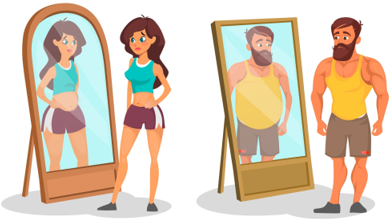
Since these behaviors are so normalized in our society, people posting this content on social media may not realize the harm. However, we must educate ourselves about how engaging in these practices can be detrimental to our mental health, as well as the mental health of our friends, family, and people we may not know.
While social media is inundated with harmful messages, many users attempt to counteract this with positive content. For example, the body-positive movement on social media has gained popularity, with millions of users tagging #bopo, #bodypositive, and #bodypositivity. This movement has been proven to help people appreciate their bodies more, as it encourages people to focus on the positive aspects, rather than elements they are unhappy with. Research has shown that viewing body-positive content can improve body satisfaction and increase positive mood.
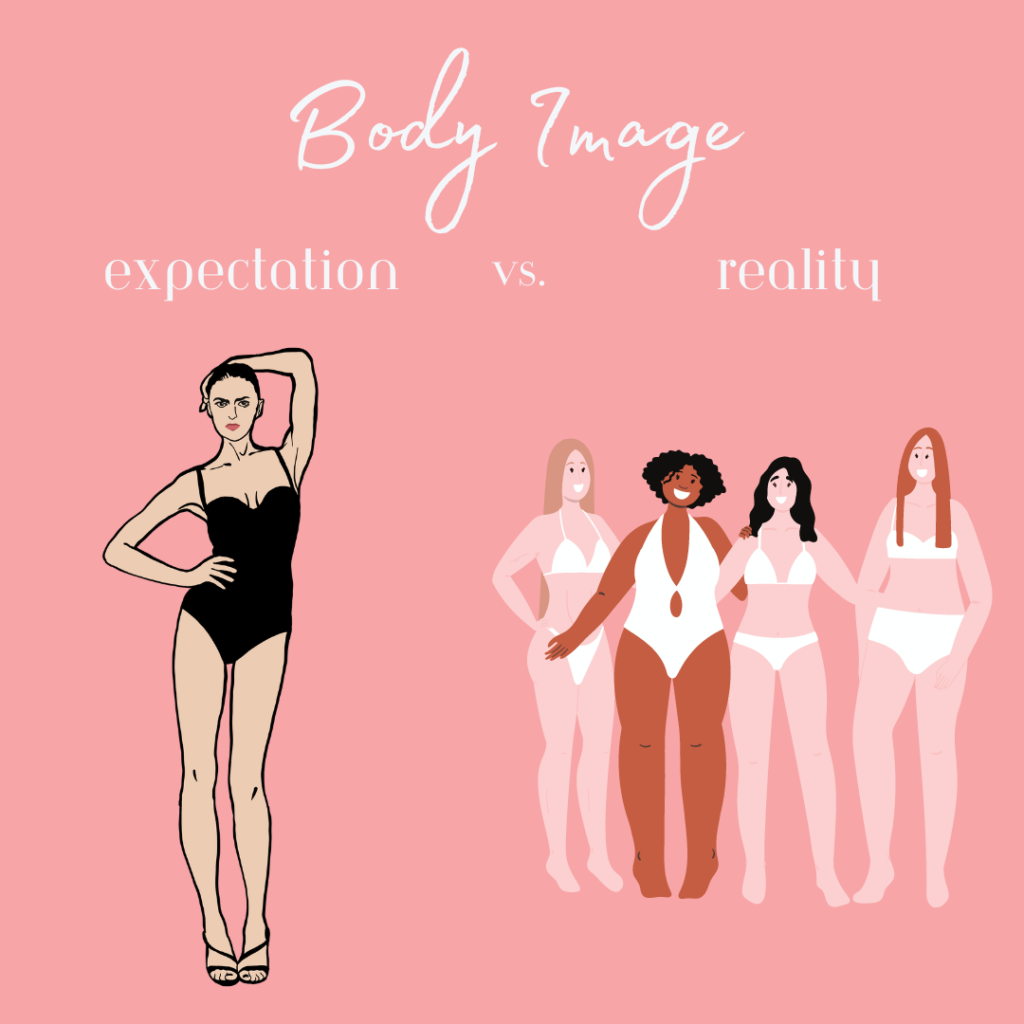
While many of the statistics surrounding body image and social media are negative, we must also recognize that platforms such as Instagram and TikTok can also create positive environments for those struggling with body image issues. It is important to be mindful of the creators that we follow, as they can inadvertently have a large impact on a person’s perception of their appearance.
Comparison is the thief of joy, so it is necessary to remember that everyone is unique. Also, thin ≠ healthy: we must not assume that the way a person looks has anything to do with their health. We are only given one body, we should appreciate it for all that it does for us, rather than what it looks like.
If you are struggling with your body image and are trying to find ways to improve, try the following:
- Follow body-positive creators on social media (I have listed some below)
- Practice positive affirmations (examples below)
- Practice gratitude for your body (examples below)
- Don’t ruminate on body changes: this is a natural part of the human experience!
- Remember that beauty is in the eye of the beholder
Body-Positive Creators:
- @brittanilancaster (TikTok)
- @thekatrinanichole (TikTok)
- @spencer.barbosa (TikTok)
- @laura.iu (Instagram)
- @grow.withmoll (Instagram)
- @kale.themwith.kindness (Instagram)
Positive Affirmations
- “I am worthy of love and respect, no matter what my body looks like.”
- “I love and accept myself and my body unconditionally.”
- “I am comfortable and confident in my skin.”
- “My body is unique, and that is something to be celebrated.”
- “I do not need to change my appearance to be beautiful.”
Gratitude for your Body
- “I am grateful for the strength and health my body provides.”
- “I appreciate that my body can breathe and move.”
- “I am grateful that my body allows me to experience life fully.”
- “I am thankful that I can participate in daily activities without a second thought”
- “I am appreciative of my body’s healthy functioning which allows me to thrive”
Sources
- Abdou, A. Follow These 8 Body Positivity TikTokers For An Instant Boost Of Self-Love. Gimme. https://gim.me/how-to/body-positivity-tiktokers-to-follow/.
- Cohen R, Fardouly J, Newton-John T, et al. (2019) #BoPo on Instagram: An experimental investigation of the effects of viewing body positive content on young women’s mood and body image. New Media & Society 21: 1546–1564.
- Cohen, R., Newton-John, T., & Slater, A. (2021). The case for body positivity on social media: Perspectives on current advances and future directions. Journal of Health Psychology, 26(13), 2365-2373.
- “How Many People Use Social Media?” (2023). Oberlo. https://www.oberlo.com/statistics/how-many-people-use-social-media#:~:text=The%20latest%20figures%20show%20that,jump%20in%20just%20five%20years.
- Jiotsa, B., Naccache, B., Duval, M., Rocher, B., & Grall-Bronnec, M. (2021). Social media use and body image disorders: Association between frequency of comparing one’s own physical appearance to that of people being followed on social media and body dissatisfaction and drive for thinness. International journal of environmental research and public health, 18(6), 2880.
